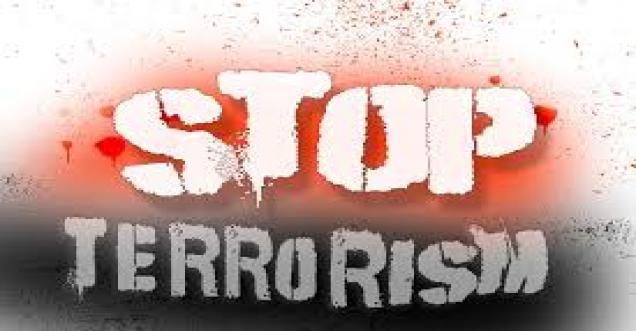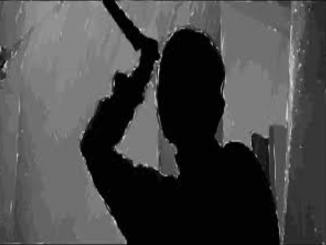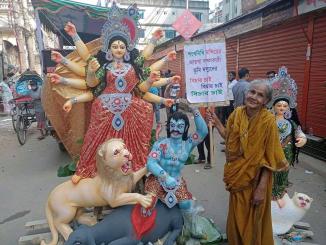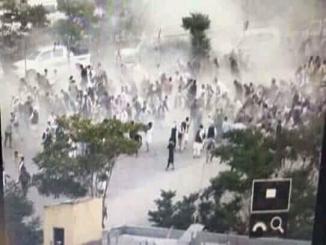
Know the Domestic terrorists Organizations from Pakistan
The whole world is leading into education and health care and other sectors like information technology, but looks like In Pakistan it is just like any other education system, join at any time the terror groups. Here is the list of top terror groups in Pakistan
- Tehreek-e-Taliban Pakistan (TTP)
It is the most deadliest militant outfit in Pakistan, which was formed after 9/11. It is also known as Pakistan Taliban. After the American intervention in Afghanistan, a section of radicals started a movement inside Pakistan to support the Taliban and officially came into existence on In December 2007, after the Lal Masjid (Red Mosque) incident happened in July 2007
Leader: Maulana Fazlullah
- Lashkar-e-Omar (LeO)
Lashkar-e-Omar (LeO) is a new terrorist group reportedly founded in January 2002 and is a conglomerate of Harkat-ul-Jihad-i-Islami, Lashkar-e-Jhangvi and Jaish-e-Mohammed cadres. It was formed after the arrests of several front-ranking Islamist leaders in Pakistan following President Pervez Musharraf’s address to the nation on January 12, 2002, in which he committed himself to dismantling the structures and networks of terrorism based in his country.
Activities and Incidents
The Lashkar-e-Omar is suspected to be involved in the terrorist attack on a church in Model Town, Bahawalpur in Punjab on October 28, 2002, in which a police personnel and 17 Christians, including five children, were killed and nine others injured.
- Sipah-e-Sahaba Pakistan (SSP)
Earlier termed Anjuman Sipah-e-Sahaba, the Sipah-e-Sahaba Pakistan (SSP) is a Sunni sectarian outfit that has been alleged to be involved in terrorist violence, primarily targeted against the minority Shia community in Pakistan.
- Tehreek-e-Jaferia Pakistan (TJP)
Tehreek-e-Jaferia Pakistan (TJP) meaning 'movement of the followers of Fiqah-e-Jaferia’, the dominant Shia outfit in Pakistan was formed in 1992. The origin of TJP can be traced to the Tehreek Nifaz Fiqah-e-Jafria (TNFJ) meaning ‘movement for the implementation of Fiqah-e-Jafreia' (a school of Islamic jurisprudence which is traced back to its founder Imam Jafar Sadiq) which was formed in 1979 to protect the interests of the Shiite minority and to spread the ideas of Ayatollah Khomeini, the Iranian leader who led the successful Islamic Revolution that overthrew the Shah of Iran in 1979.
- Tehreek-e-Nafaz-e-Shariat-e-Mohammadi(TNSM)
The Tehreek-e-Nafaz-e-Shariat-e-Mohammadi is one of the five outfits that were proscribed by President Pervez Musharraf on January 12, 2002. The Tehreek-e-Nafaz-e-Shariat-e-Mohammadi (TNSM) was founded in 1992 with the objective of a militant enforcement of Sharia (Islamic law).
- Lashkar-eJhangvi (LeJ)
Lashkar-e-Jhangvi (LeJ), a Sunni-Deobandi terrorist outfit was formed in 1996 by a break away group of radical sectarian extremists of the Sipah-e-Sahaba Pakistan (SSP), a Sunni extremist outfit, which accused the parent organisation of deviating from the ideals of its slain co- founder, Maulana Haq Nawaz Jhangvi. It is from Maulana Jhangvi that the LeJ derives its name. It was formed under the leadership of Akram Lahori and Riaz Basra. The LeJ is one of the two sectarian terrorist outfits proscribed on August 14, 2001, by President Pervez Musharraf.
- Sipah-e-Muhammad Pakistan (SMP)
Sipah-e-Mohammed Pakistan (SMP) literally meaning ‘Army of Muhammad’ refers to a Shia group which is involved in sectarian terrorist activity primarily in Pakistani Punjab. The SMP is one of the two sectarian terrorist outfits proscribed on August 14, 2001, by President Pervez Musharraf.
- Jamaat-ul-Fuqra
Jamaat ul-Fuqra (JF) or "community of the impoverished", a terrorist outfit operating in Pakistan and North America, was formed by a Pakistani cleric, Sheikh Mubarak Ali Gilani, in New York in 1980, on his first visit to the US. Mubarak Gilani's intention in forming the outfit was to 'purify' Islam through violence.
- Nadeem Commando
A relatively small terrorist outfit, Nadeem Commando (NC), comprises largely of Mohajirs (Muslims who migrated to Pakistan in 1947 from areas in India). It professes the ideology of the Mohajir Quami Movement (MQM) and fervently advocates the rights of Mohajirs.
- Popular Front for Armed Resistance
The Popular Front for Armed Resistance (PFAR), a terrorist outfit formed during the 1960's advocates the secession of all Baluch regions from Pakistan. Their areas of operation are in the Baluch regions of Pakistan and Afghanistan. Although there are no accurate independent estimates of its membership strength, the outfit claimed that during the 1980's there were 3000 Baluch cadres based in Afghanistan, and an equal number in Sindh.
Source:
http://www.satp.org/satporgtp/countries/pakistan/terroristoutfits/group_list.htm
https://en.wikipedia.org/wiki/Pakistan_and_state-sponsored_terrorism












.jpg)














